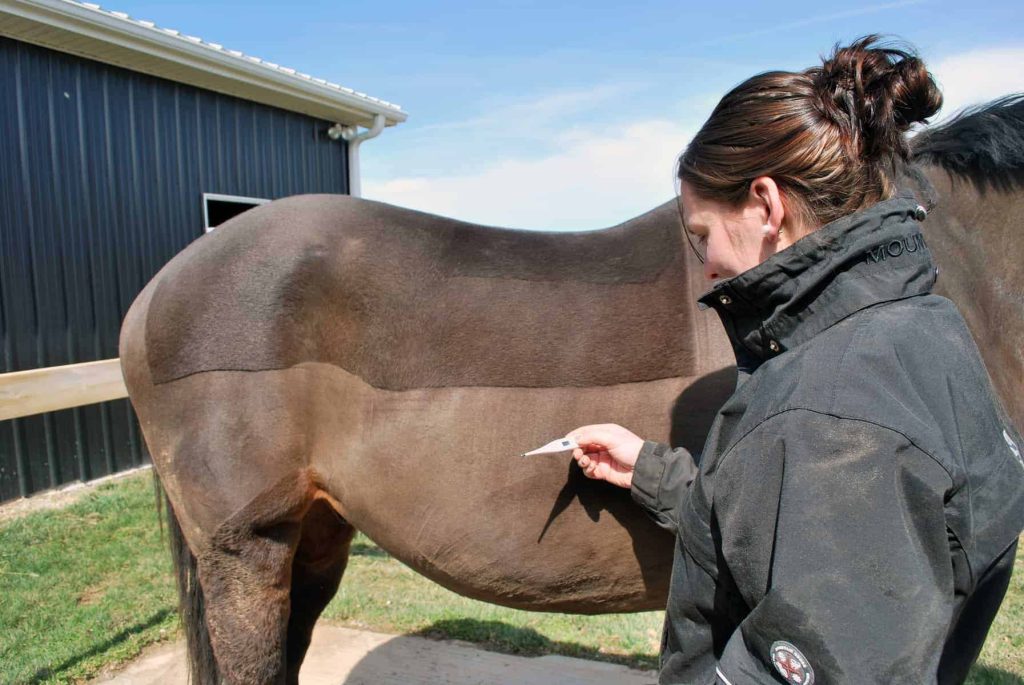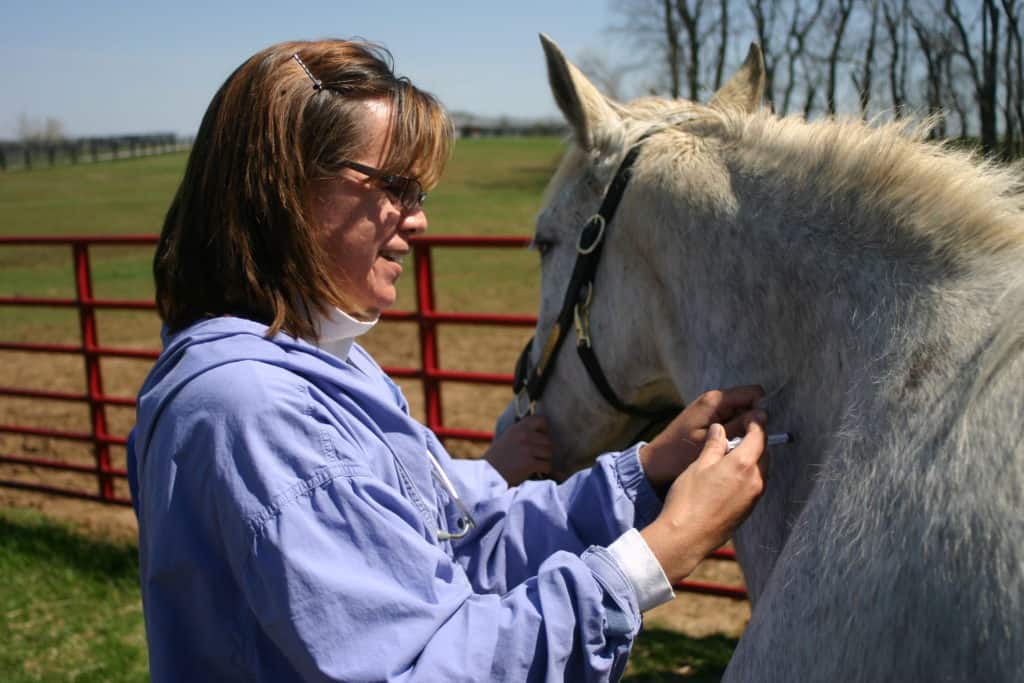
EHM Confirmed in Fauquier County, Virginia, Horse
The horse first showed mild neurologic signs on May 10 and was admitted directly into isolation at the Marion DuPont Scott Equine Medical Center, in Leesburg, Virginia, on May 16.

The horse first showed mild neurologic signs on May 10 and was admitted directly into isolation at the Marion DuPont Scott Equine Medical Center, in Leesburg, Virginia, on May 16.

Horses that don’t receive annual vaccinations against the five core equine diseases could be facing serious illness or even death.

The EIA-positive Quarter Horse from Bexar County has been euthanized and the affected Maverick County Quarter Horse has been transferred to a quarantine facility.

Recently Oklahoma has averaged approximately 40 cases of mosquito-borne diseases in horses per year.

The EHV-1-positive horse has been placed in isolation and the facility has been quarantined.

Prior to diagnosis, the affected horse attended barrel racing events at the Oklahoma City Fair Grounds on April 28-30 and the Williamson County Expo Center in Taylor, Texas, on May 5.

Because rabies threatens both horses and the humans who handle them, the AAEP recommends rabies as one of five core vaccines every U.S. horse should receive.

The affected 19-year-old Quarter Horse mare belongs to a college rodeo participant and recently traveled to events in the Great Plains Region.

The horse diagnosed with EHM attended high school rodeos in Laramie on April 7 and 8 and Rock Springs on April 14 and 15.

Since its inception, the Unwanted Horse Veterinary Relief Campaign (UHVRC) has delivered more than 28,000 doses of core vaccines.

State animal health officials are encouraging horse owners to have their animals vaccinated against mosquito-borne diseases–including Eastern equine encephalomyelitis and West Nile virus–and rabies.

The horse was euthanized due to a suspected case of rabies but was later confirmed positive for equine herpesvirus myeloencephalopathy (EHM), the neurologic form of EHV-1.

Three additional horses have tested positive for equine hepresvirus-1 (EHV-1), California animal health officials reported.

Most EIA testing is done on a voluntary basis–owners aren’t necessarily required to test every horse at set intervals–making it very difficult to know the disease’s true prevalence, one researcher says.

A barrel racing horse developed rapidly progressive signs of EHM (the neuorlogic form of EHV-1) on April 19 and was euthanized the same day.

Equine protozoal myeloencephalitis (EPM) can cause devastating neurologic illness in horses. Here’s what veterinarians know about how to diagnose, treat, and prevent EPM, and where the research is headed.
Stay on top of the most recent Horse Health news with
"*" indicates required fields